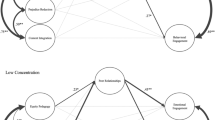Abstract
In this paper, I offer my own counterstory of matriculating through a teacher education program as an African American student on a predominately White campus as a reference point for thinking through how racism operates through teacher education’s dominant discourse and practice of teacher reflection. It is an important story to tell primarily because it touches on a largely unexplored dimension of teacher reflection. While the large majority of the literature has focused on how to prepare White preservice teachers to teach in a culturally and racially complex world, little qualitative attention has been given to the preparation of nonwhite students. While there are a few select and important articles that touch on some of the challenges African American students face in predominately White teacher education programs, including covert and overt racism, none focus on how teacher reflection might reproduce these dynamics. Thus what the literature on teacher reflection often suggests is that it is a racially neutral practice. In this essay, however, I suggests otherwise, by providing an intimate and critical look at my process of learning to be a reflective practitioner. The question I seek to grapple with is quite simply, “What does teacher reflection work to repress?”
Similar content being viewed by others
References
Ani, M. (1994). Yurugu: An African-centered critique of European cultural thought and behavior. Trenton, NJ: Africa World Press.
Bengtsson, J. (2003). Possibilities and limits of self-reflection in the teaching profession. Studies in Philosophy, 22(3/4), 295.
Britzman, D. P. (1992). Structures of feeling in curriculum and teaching. Theory into Practice, 31(3), 252–258.
Britzman, D. P. (2000). Teacher education in the confusion of our times. Journal of Teacher Education, 51(3), 200–205.
Cochran-Smith, M. (2004). Walking the road :Race, diversity, and social justice in teacher education. New York: Teachers College Press.
Delgado, R. (1989). Storytelling for oppositionalists and others: A plea for Narrative. Michigan Law Review, 87, 2411–2441.
Ellsworth, E. (1989). Why doesn’t this feel empowering? Working through the repressive myths of critical pedagogy. Harvard Educational Review, 59(3), 297–324.
Eze, E. C. (1997). Race and the enlightenment: A reader. Malden, MA: Blackwell Publishing.
Fanon, F. (1967). Peau noire, masques blancs [Black skin, white masks]. New York: Grove Press.
Fendler, L. (2003). Teacher reflection in a hall of mirrors: Historical influences and political reverberations. Educational Researcher, 32(3), 16–25.
Freire, P. (1970). Pedagogy of the oppressed. New York: Herder and Herder.
Freyd, J. (2006). The social psychology of cognitive repression. Behavioral and Brain Sciences, 30(5), 518.
Gewirtz, S. (2006). Towards a contextualized analysis of social justice in education. Educational Philosophy, 38(1), 69–81.
Giroux, H. A. (1985). Critical pedagogy cultural politics, and the discourse of experience. Journal of Education, 167(2), 22–41.
Gutierrez-Jones, C. S. (2001). Critical race narratives :A study of race, rhetoric, and injury. New York: New York University Press.
Hankes, J. (1996). Reflecting on the history, ethics and application of teacher reflection. Eric document.
Henry, A. (1993). There are no safe places: Pedagogy as powerful and dangerous terrain. Action in Teacher Education, 15, 4–14.
hooks, B. (1989). Talking back: Thinking feminist, thinking black. Boston, MA: South End Press.
hooks, B. (1995). Killing rage: Ending Racism. New York: Holt and Co.
Kincheloe, J., Steinberg, S., Rodriguez, N., & Chennault, R. (Eds.). (1998). White reign: Deploying whiteness in America (1st ed.). New York: St. Martin’s Press.
Kincheloe, J. L., & Pinar, W. (1991). Curriculum as social psychoanalysis: The significance of place. Albany: State University of New York Press.
Kincheloe, J. L., & Steinberg, S. (1993). A tentative description of post-formal thinking: The critical confrontation with cognitive theory. Harvard Educational Review, 63(3), 296–320.
King, J. E. (1991). Dysconscious racism: Ideology, identity, and the miseducation of teachers. Journal of Negro Education, 60(2), 133–146.
Knowles, C. (2003). Race and social analysis. Thousand Oaks, CA: London.
Kornfield, J. (1999). Sharing stories: A study of African American students in a predominately white teacher education program. Teacher Educator, 35(1), 19–40.
Kovel, J. (1971). White racism, a psychohistory. New York: Vintage Books.
Kumashiro, K. K. (2002). Against repetition: Addressing resistance to anti-oppressive change in the practices of learning, teaching, supervising, and researching. Harvard Educational Review, 72(1), 67–92.
Ladson-Billings, G. (1996). Silences as weapons: Challenges of a black professor teaching white students. Theory into Practice, 35(2), 79–85.
Mayes, C. (2005). Teacher as sharman. Journal of Curriculum Studies, 37(3), 329–348.
Meacham, S. J. (2000). Black self-love, language, and the teacher education dilemma: The cultural denial and cultural limbo of African American preservice teachers. Urban Education, 34(5), 571–596.
Milner, H. R. (2003). Reflection, racial competence, and critical pedagogy: How do we prepare pre-service teachers to pose tough questions? Race Ethnicity and Education, 6(2), 193–208.
Milner, H. R. (2007). Race, narrative inquiry, and self-study in curriculum and teacher education. Education and Urban Society, 39(4), 583–609.
Mintzberg, H. (2005). Developing theory about the development of theory. In K. Smith & M. Hitt (Eds.), Great minds in management. New York: Oxford University Press.
Moore, A. (2004). The good teacher: Dominant discourses in teaching and teacher education. London: RoutledgeFalmer.
P’Bitek, O. (1998). The sociality of self. In E. C. Eze (Ed.), African philosophy: An anthology (pp. 73–78). Malden, MA: Blackwell Publishers, Inc.
Pinar, W. (1975). Curriculum theorizing: The reconceptualists. Berkeley, CA: McCutchan Pub. Corp.
Pinar, W. (2004). What is curriculum theory? Mahwah, NJ: Lawrence Erlbaum.
Smedley, A. (1993). Race in North America: Origin and evolution of a worldview. Boulder: Westview.
Twain, M., & Blair, W. (1988). Adventures of Huckleberry Finn. Berkeley: Published in cooperation with the University of Iowa by the University of California Press.
Valli, L. (1997). Listening to other voices: A description of teacher reflection in the United States. Peabody Journal of Education, 72(1), 67–88.
Author information
Authors and Affiliations
Corresponding author
Rights and permissions
About this article
Cite this article
Baszile, D.T. The Oppressor Within: A Counterstory of Race, Repression, and Teacher Reflection. Urban Rev 40, 371–385 (2008). https://doi.org/10.1007/s11256-008-0090-1
Published:
Issue Date:
DOI: https://doi.org/10.1007/s11256-008-0090-1




